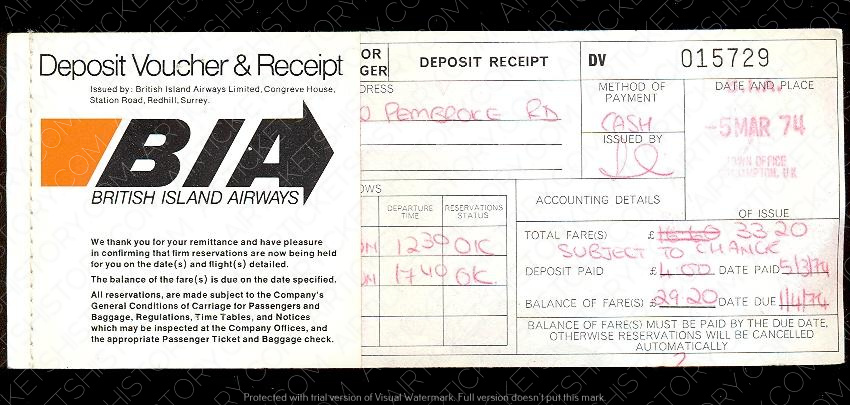
HISTORY: BRITISH ISLAND AIRWAYS (BIA) was the new name BUIA, the regional affiliate of British United Airways (BUA), adopted in July 1970. At that time the airline adopted a new livery as well. When in late November of that year Caledonian Airways acquired BUA from British and Commonwealth (B&C), the owner of both BUA and BUIA at the time, the latter's assets were not included in that deal. As a result, BUA's former parent company continued to own BIA. Following the completion of BUA's sale to Caledonian on 30 November 1970, BIA officially began its life as a legal entity in its own right the following day, 1 December 1970. BIA hoped that the merger with Air Anglia, as well as Air Wales and Air Westward, to form Air UK in January 1980 would help it transform its financial performance by counterbalancing BIA's predominantly seasonal scheduled operations across the Western half of the British Isles with Air Anglia's year-round scheduled services linking important oil and gas industry centres covering the Eastern half of Britain, as well as by spreading fixed costs over a greater level of activity as a result of the new airline combine's greater economies of scale. Following several unsuccessful attempts to sell the loss-making charter operation Air UK had inherited at the time of its formation from the original BIA to another airline, Peter Villa, then the Air UK managing director (as well as the original BIA's [second] MD), decided in 1982 to reconstitute BIA as a charter airline. This involved Villa's purchase of BIA Ltd, a wholly owned B&C subsidiary that had assumed the ownership of Air UK's non-scheduled division to facilitate its eventual disposal, with a loan from the owners. The "new BIA" was headquartered at Apollo House on the industrial estate in Crawley's Lowfield Heath area (close to Gatwick Airport). It commenced operations on 1 April 1982 with the four One-Eleven 400s the original BIA had acquired in 1979 to establish a charter operation. Ultimately, BIA's inability to become part of a bigger, financially stronger organisation, the deep recession in the UK during the early 1990s, as well as the escalating jet fuel price and the collapse of the package tour market in the run-up to the first Gulf War during the summer of 1990 resulted in a 38% reduction in its passenger traffic (compared with the same period the year before) and were the main factors that forced the reconstituted BIA to cease all operations on 9 February 1991.
| SEE BOARDING PASS |

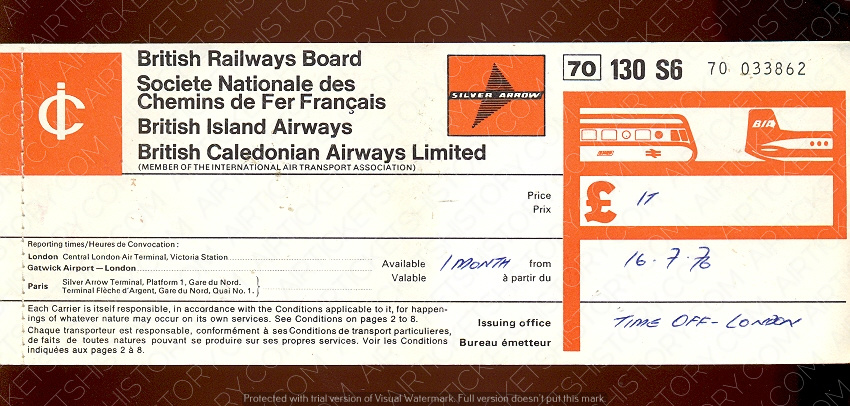
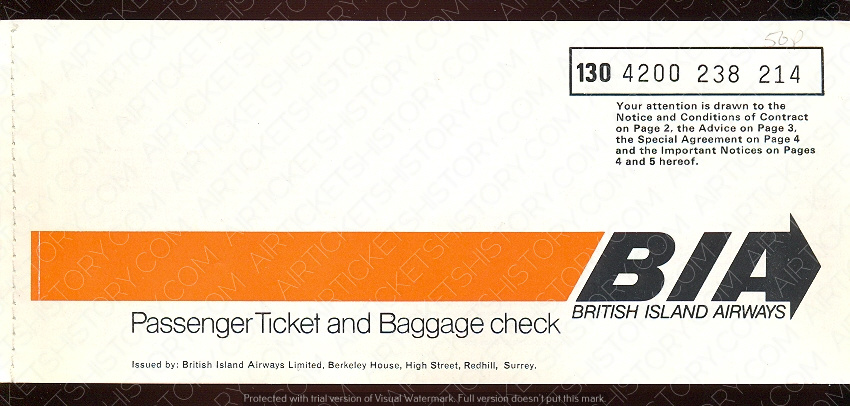
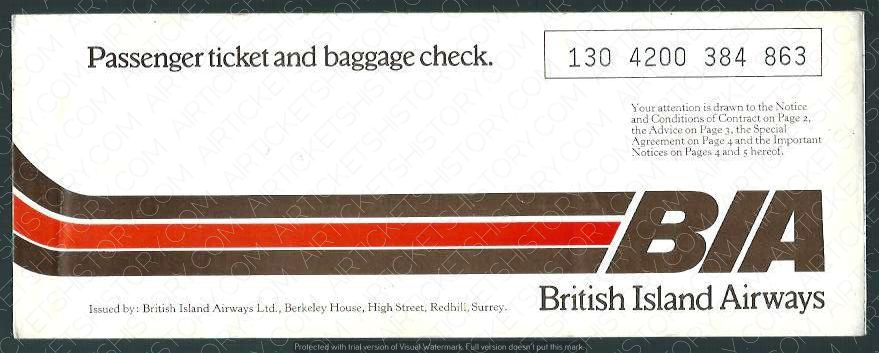
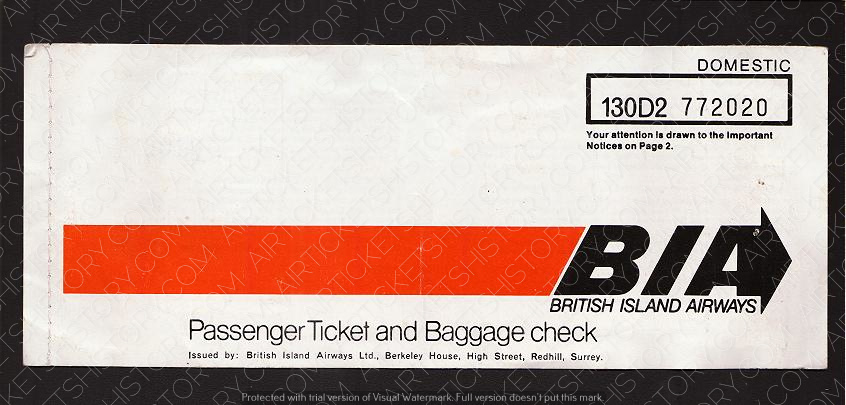
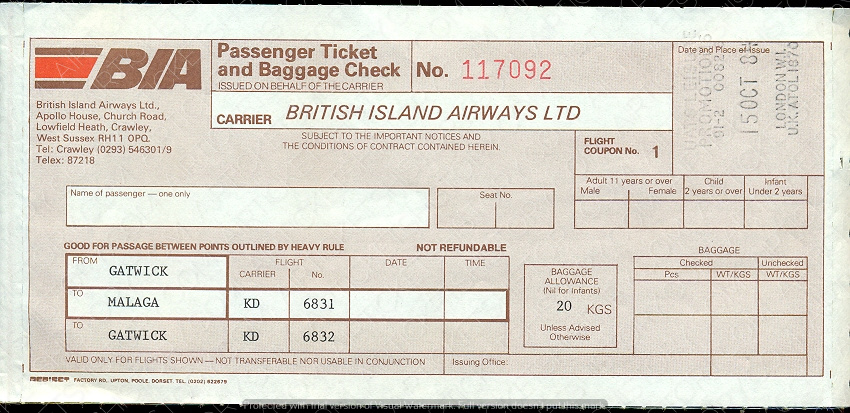
| GO BACK TO UNITED KINGDOM |